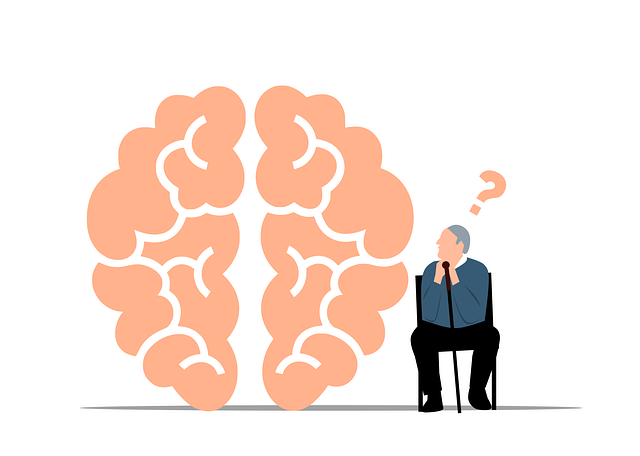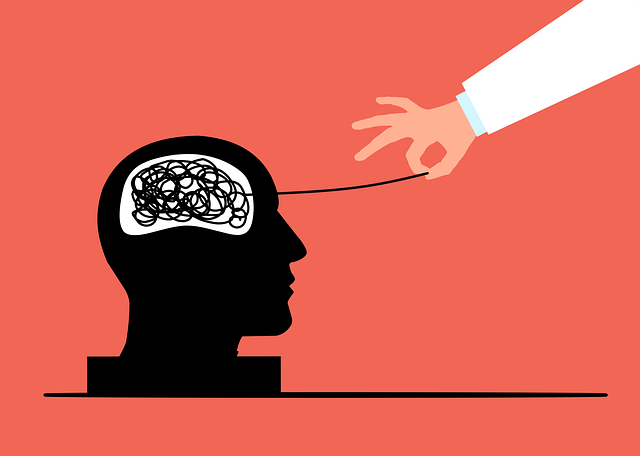Understanding the unique mental health landscape of older adults is crucial for effective diagnosis and treatment, especially regarding conditions like depression, anxiety, and autism spectrum disorder (ASD). ASD symptoms in the elderly often go overlooked due to societal misconceptions. Caregivers and healthcare professionals must be educated to recognize these challenges, with early intervention vital for managing complex disorders like ASD. Therapy, including cognitive-behavioral therapy (CBT), group therapy, and community support networks, plays a key role in treating mental health issues in the elderly, improving their access to suitable treatment options. Building robust support systems and fostering open dialogues about mental wellness are essential to empowering elders with ASD or other mental health conditions throughout their therapeutic journey.
“Mental illness diagnosis and treatment navigation assistance are vital components of caring for elderly individuals, especially those with Autism Spectrum Disorder (ASD). This comprehensive guide delves into the unique challenges facing older adults with mental health concerns. We explore common issues in understanding elderly mental health, offering insights into ASD’s manifestation in this demographic.
For caregivers, we provide strategies to navigate the diagnostic process, followed by an overview of therapy options tailored for elderly patients. Additionally, we emphasize building support systems, empowering elders to manage and overcome their mental health journeys effectively.”
- Understanding Elderly Mental Health: Unveiling Common Challenges
- Autism Spectrum Disorder in Older Adults: A Unique Perspective
- Navigating the Diagnostic Process: Strategies for Caregivers
- Therapy Options: Tailoring Treatments for Elderly Patients
- Building Support Systems: Empowering Elders on Their Journey
Understanding Elderly Mental Health: Unveiling Common Challenges

Understanding the unique mental health challenges faced by older adults is a crucial step in providing effective navigation assistance for their diagnosis and treatment. As the population ages, the prevalence of mental disorders among elderly individuals increases significantly. Conditions such as depression, anxiety, and even autism spectrum disorder (ASD) are not uncommon in this demographic. These disorders can manifest differently compared to younger populations, often accompanied by physical health issues or cognitive changes associated with aging.
One of the primary challenges is the tendency for mental health symptoms to be overlooked or misattributed to natural aging processes. For instance, social withdrawal could be mistaken for mere inactivity related to old age. Similarly, communication difficulties in older adults with ASD may be perceived as a normal part of aging rather than a symptom of a broader mental health condition. Effective navigation assistance should include comprehensive education for caregivers and healthcare professionals, promoting awareness of these unique challenges. This can facilitate early intervention, which is vital for preventing the exacerbation of depression or managing complex conditions like ASD in older adults.
Autism Spectrum Disorder in Older Adults: A Unique Perspective

Autism Spectrum Disorder (ASD) is a unique challenge for older adults, often overlooked due to societal misconceptions about its presentation in later life. As individuals age, the symptoms of ASD can manifest differently compared to younger populations, making diagnosis and subsequent therapy planning intricate. This complexity necessitates specialized assistance in navigating mental health services tailored for this demographic. The process involves delving into an individual’s history, social dynamics, and unique strengths to design effective interventions.
Promoting positive thinking is integral to the treatment journey, encouraging self-acceptance and fostering a sense of agency. Mental wellness journaling exercises can offer a creative outlet for older adults with ASD to express their experiences, emotions, and progress. Additionally, advocacy through mental health policy analysis plays a pivotal role in shaping support systems, ensuring access to evidence-based therapy for elders on the spectrum. These comprehensive strategies contribute to an improved understanding and better outcomes for those navigating the challenges of ASD in adulthood.
Navigating the Diagnostic Process: Strategies for Caregivers

Navigating the diagnostic process for mental illness can be a complex and daunting task, especially when caring for an elderly loved one with Autism Spectrum Disorder (ASD). Caregivers play a pivotal role in supporting their relatives or friends through this journey. Firstly, it’s crucial to encourage open communication. Creating a safe, non-judgmental space allows individuals to express their feelings honestly. This may include discussing changes in behavior, mood swings, or any challenges they face daily.
Additionally, caregivers should educate themselves about ASD and mental health conditions prevalent among the elderly. Understanding co-morbidities and unique symptoms can aid in recognizing specific needs. Regular appointments with healthcare professionals, including psychiatrists and therapists specializing in older adults, are essential. These professionals can guide the process, offer evidence-based therapies like cognitive-behavioral therapy (CBT), and help manage symptoms effectively. Burnout prevention is also vital for caregivers; prioritizing self-care practices, such as stress management techniques and setting realistic boundaries, ensures they remain supportive companions throughout the diagnostic and treatment navigation assistance.
Therapy Options: Tailoring Treatments for Elderly Patients

Elderly patients with mental health issues often require specialized care, and therapy is a cornerstone of effective treatment. Various therapeutic approaches can be tailored to meet their unique needs, addressing conditions such as Autism Spectrum Disorder (ASD) that may present distinct challenges in older adults. For instance, cognitive-behavioural therapy (CBT) has proven beneficial for mood management, helping seniors identify and change negative thought patterns. This approach is highly adaptable and can incorporate strategies for self-care routine development, empowering the elderly to take an active role in their mental health.
Additionally, group therapy sessions cater to the social needs of older adults while offering a safe space to share experiences and learn from peers. Public awareness campaigns that highlight the importance of early intervention and encourage open conversations about mental health can further facilitate access to suitable treatment options for this demographic. By combining personalized therapy with supportive community initiatives, we can ensure more effective navigation of diagnosis and treatment for the elderly population facing mental illness.
Building Support Systems: Empowering Elders on Their Journey

Building support systems is an integral part of empowering elders navigating mental illness. As they embark on their journey to therapy for autism spectrum disorder (ASD) or other mental health concerns, it’s crucial to surround them with a network that understands and supports their unique needs. This includes family members, friends, and community resources who can offer encouragement, assist with transportation to appointments, and help manage daily tasks, easing the transition into seeking professional help.
Mind over Matter principles emphasize self-care, resilience, and positive coping strategies that can be shared within this support system. By fostering open conversations about mental wellness and promoting understanding of specific challenges like ASD, elders can feel less isolated. Healthcare provider cultural competency training also plays a vital role in ensuring these support systems are equipped to advocate for the elder’s needs, fostering a collaborative environment for their holistic mental health care.
Mental illness diagnosis and treatment for elderly individuals, especially those with autism spectrum disorder (ASD), can be complex. However, understanding the unique challenges they face is crucial in providing effective care. By employing strategies such as early intervention and tailored therapy options, like cognitive-behavioral therapy or supportive psychotherapy, we can significantly improve their quality of life. Caregivers play a vital role in this process by offering navigation assistance throughout the diagnostic journey and helping to build robust support systems. With the right approach, we can foster empowering environments that enable elders to thrive and age gracefully with their mental health needs met.














